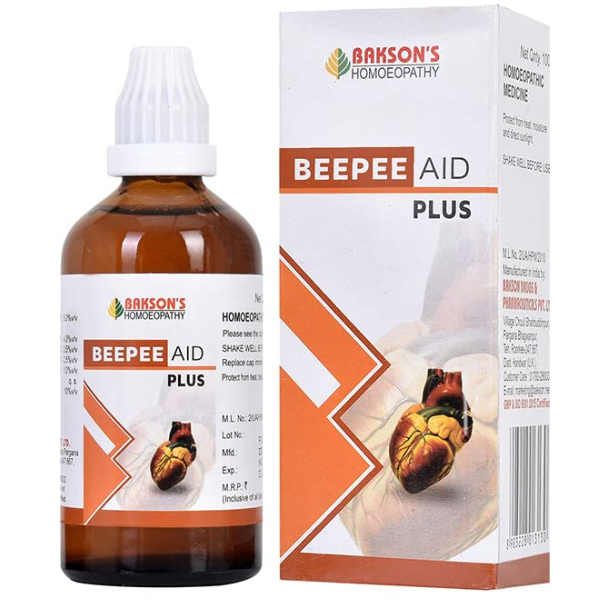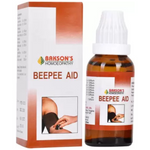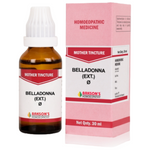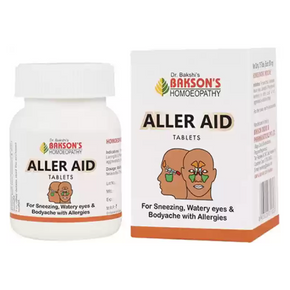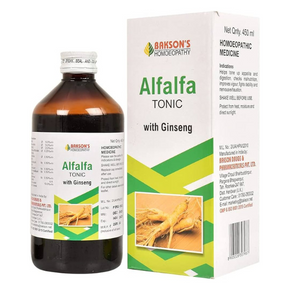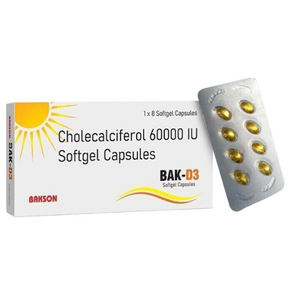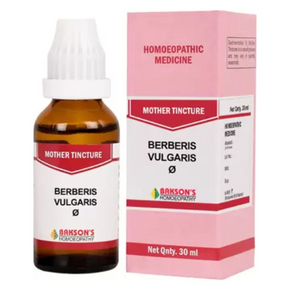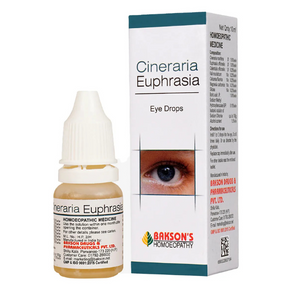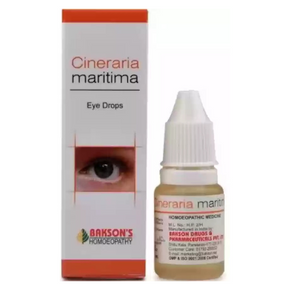- No products in the cart.
BAKSON'S HOMEOPATHY BEEPEE AID PLUS DROPS (100 ML)
No reviews
Rs. 330.00
🥳 Don’t Miss 🎉 New Year Discounts till 9th Jan 2026 🤩
Fulfilled By Planet Ayurveda
Size (Per Unit): 100 ML
Dosage: Take 10 drops mixed in some water, thrice daily. Or as prescribed by the physician.
Categories
- Clinically Tested Products
- Classical Ayurvedic Products
- Ayurvedic Products for Pets
- Herbal Combo Packs
- Single Herbal Capsules
- Poly Herbal Capsules
- Single Herb Powders
- Herbal Powder Blends
- Beauty & Cosmetics
- Herbal Tablets
- Herbal Teas
- Herbal Juices
- Herbal Syrups
- Herbal Oils
- Premium Products Range
- All Ayurveda Brands
Browse by Category
Browse by Company
Browse by Health Concern
Description
For regulating Blood Pressure and Blood Cholesterol levels to maintain healthy blood circulation.
Hypercholesterolemia and Hypertension are both major risk factors for the development and progression of atherosclerotic heart disease and their co-existence has been associated with an increased incidence of cardiac events like Strokes, Heart Attacks or Kidney Disease and even insulin resistance in case of high cholesterol. Normal blood pressure is when blood pressure is lower than 120/80 mmHg most of the time. The normal range for total blood cholesterol is between 140 and 200 mg per decilitre (mg/dL) of blood.
Bee Pee Aid Plus is a safe homoeopathic combination which reduces blood pressure and cholesterol levels without side effects or dependency, under the supervision of medical practitioner along with lifestyle changes. Regular medical checks ups are imperative to keep track on prognosis and health benefits.
Composition
Rauwolfia serpentina Ø, Crataegus oxyacantha Ø, Cactus grandiflorus Ø, Fucus vesiculosus Ø, Curcuma longa Ø.
Indications
For regulating Blood Pressure and Blood Cholesterol levels to maintain healthy blood circulation.
Dosage
Take 10 drops mixed in some water, thrice daily. Or as prescribed by the physician.
Contra-indication
None
Side effects
No known side effects
More Information
Hypercholesterolemia (HC) and Hypertension (HT) are both major risk factors for the development and progression of atherosclerotic heart disease and their co-existence has been associated with an increased incidence of cardiac events. HC and HT are individually associated with abnormal myocardial vascular function.
Blood pressure is determined by the amount of blood heart pumps and the amount of resistance to blood flow in arteries. The more blood heart pumps and narrower the arteries, higher the blood pressure.
Although a few people with early-stage high blood pressure may have dull headaches, dizzy spells or a few more nosebleeds than normal, these signs and symptoms usually don't occur until high blood pressure has reached a severe or life-threatening stage.Even without symptoms, damage to blood vessels and heart continues and can be detected. Hypertension, or high blood pressure, is dangerous because it can lead to strokes, heart attacks, heart failure, or kidney disease.
- Normal B.P. is when blood pressure is lower than 120/80 mmHg most of the time.
- High B.P. (hypertension) is when blood pressure is 140/90 mmHg or above most of the time.
- If B.P. numbers are 120/80 or higher, but below 140/90, it is called pre-hypertension.
Hypercholesterolemia is a disorder characterized by high levels of blood cholesterol.
If blood cholesterol levels are elevated, large amounts of LDL (so-called bad) cholesterol deposit in the arterial walls. These deposits represent the first stage of atherosclerosis, or narrowing of the arteries. As hypercholesterolemia causes no symptoms, preventive measures and regular measurement of cholesterol levels are important for people in high-risk categories. Left untreated, hypercholesterolemia can eventually lead to a heart attack due to coronary artery disease or a stroke due to narrowed arteries supplying the brain. 88% of people with low HDL and 84% with high triglycerides also have insulin resistance (which leads to high blood sugar levels). Many people with insulin resistance go on to develop Diabetes.
The normal range for total blood cholesterol is between 140 and 200 mg per decilitre (mg/dL) of blood. The amount of HDL relative to LDL is considered a more important indicator of heart disease risk. There is a third kind of fatty material called triglycerides found in the blood. They also play a role (generally as triglyceride levels rise, "good" HDL cholesterol falls).
Management
Lifestyle Changes
One can lower blood pressure and cholesterol levels with the following lifestyle changes
- Losing weight if one is overweight or obese.
- Quitting smoking.
- Eating a healthy diet, including the DASH diet (eating more fruits, vegetables, and low fat dairy products, less saturated and total fat).
- Reducing the amount of sodium in diet to less than 1,500 milligrams a day if one has high blood pressure.
- Getting regular aerobic exercise (such as brisk walking at least 30 minutes a day, several days a week).
- Limiting alcohol to two drinks a day for men, one drink a day for women.
Antihypertensives and drugs to reduce cholesterol effects though help control levels but have their side effects too.
Diuretics may cause extra urination, erection problems, weakness and leg cramps. Beta bockers may cause Asthma symptoms, Depression, Insomnia etc. ACE inhibitors may cause dry hacking cough that doesn't go away, skin rash and loss of taste
Statins, for lowering Cholesterol have side effects which can include Myositis (inflammation of the muscles), joint pain, stomach upset and Liver damage. People who are pregnant or have liver disease should not take statins.
Bee Pee Aid Plus is a safe homoeopathic combination of remedies for their known effects on reducing blood pressure and cholesterol levels without side effects or dependency, to be taken under the supervision of medical practitioner along with lifestyle changes. Regular medical checks ups are imperative to keep track on prognosis and health benefits.
Action of individual Remedies
- Rauwolfia serpentina: Helps in reducing high blood pressure when there are no atheromatous changes in the blood vessels.
- Crataegus oxyacantha: Acts on muscle of heart and is a heart tonic. Arteriosclerosis. Said to have a solvent power upon crustaceous and calcareous deposits in arteries. Produces reduction in High Blood pressure.
- Cactus grandiflorus: Atheromatous arteries and weak heart. Acts best in the incipiency of cardiac incompetence. Heart weakness of arterio-sclerosis.
- Fucus vesiculosus: Thyroid enlargement in obese subjects. A remedy for obesity and non-toxic goiter. It helps in reducing cholesterol and has a tonic action on glands. It may lower high blood pressure because it inhibits angiotensin-I-converting enzyme.
- Curcuma longa: Prevents atherosclerosis & heart attack or stroke. Turmeric's protective effects on the cardiovascular system include lowering cholesterol and triglyceride levels, decreasing susceptibility of low density lipoprotein (LDL) to lipid peroxidation and inhibiting platelet aggregation. These effects have been noted even with low doses of turmeric.
Disclaimer
The information provided herein on request, is not to be taken as a replacement for medical advice or diagnosis or treatment of any medical condition. DO NOT SELF MEDICATE. PLEASE CONSULT YOUR PHYSICIAN FOR PROPER DIAGNOSIS AND PRESCRIPTION.
Talk to our Experts
Our trusted experts can help you choose the right products for your health.
Book Your Consultation Now



















.png?v=1695813493)














